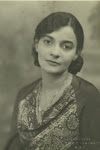
Last weekend I had brunch at Eatonville, a Washington, DC restaurant named after the birthplace of folklorist and writer Zora Neale Hurston.
In 1924 Hurston’s story Drenched in Light was published in Opportunity magazine after she won one of the writing prizes. Hurston lived in Florida at the time and the editor Charles S. Johnson encouraged her to move to New York City. He suggested that Hurston contact his assistant Ethel Ray (Regina’s roommate), assuring her that she would be warmly welcomed at her apartment. Hurston ended up staying on their couch when she first arrived in New York City.* Ethel recollected that, “Zora could tell a good story…pretended that she couldn’t talk English and so she was passed off as an African and was permitted to stay at this hotel. It gave us a good laugh.” Later, “Zora was a person rather hard to keep within bounds, you had to ride herd on her a bit, so she stayed with us at the time. We felt responsible in making certain that she was going to keep these appointments (at Barnard College for a scholarship) because with her if something else interesting came up, off she was.”**
* Valerie Boyd, Wrapped in Rainbows: The Life of Zora Neale Hurston (Great Britain: Virago, 2003).
** Ethel Ray Nance, interview by Anne Allen Shockley, tape recording, San Francisco, CA., 18 November 1970 and Nashville, TN., 23 December 1970. Black Oral History Collection, Fisk University, Nashville, TN.


